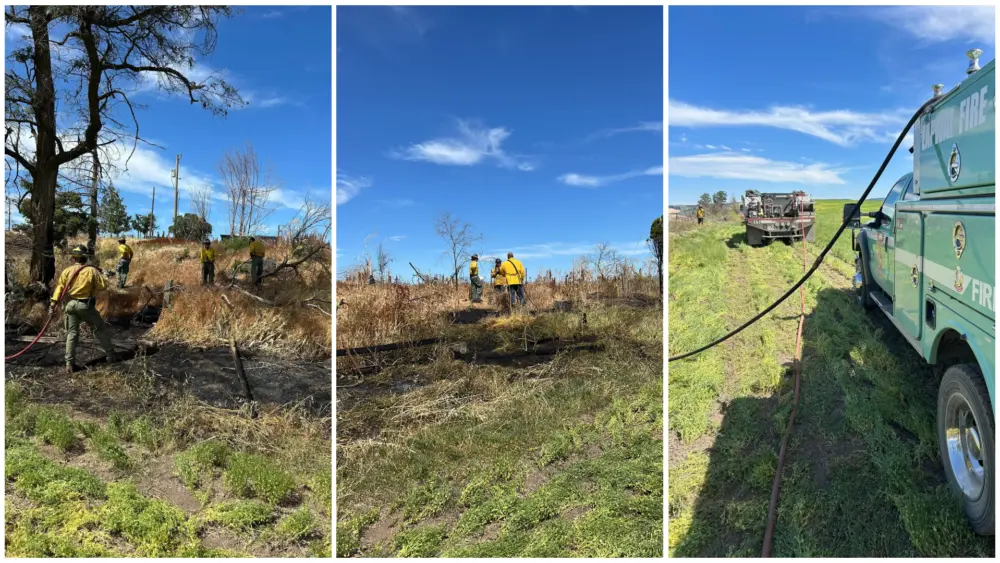Boise – (Report from AAA) Fatal crashes have dramatically increased since the start of the COVID-19 pandemic, and according to new research by AAA, riskier driving may be to blame.
In the latest version of AAA’s Traffic Safety Culture Index, drivers reported a greater willingness to engage in unsafe behavior like speeding, running red lights, and driving drowsy or impaired, even when they felt it was dangerous or that their loved ones would disapprove.
“Last year, the number of fatal crashes skyrocketed by more than 10%, with nearly 43,000 people lost on our roads,” says AAA Idaho spokesman Matthew Conde. “Our research suggests that people understand the risks associated with unsafe driving but are becoming desensitized to them. Sadly, that choice has consequences.”
The proportion of survey respondents who reported engaging in unsafe driving behaviors at least once in the past 30 days
| Unsafe Driving Behavior | 2018 (%) | 2019 (%) | 2020 (%) | 2021 (%) | Change from 2020 to 2021 (%) |
| Driving 15 mph over the speed limit on a freeway | 48.9 | 48.2 | 45.1 | 50.7 | +12.4 |
| Driving while holding and talking on a cell phone | 52.1 | 43.2 | 37.2 | 37.4 | +0.5 |
| Driving while reading a text or email on a cell phone | 41.3 | 38.6 | 33.9 | 36.2 | +6.8 |
| Driving through a red light when you could have stopped | 31.4 | 31.1 | 25.6 | 28.2 | +10.1 |
| Driving aggressively by switching lanes quickly or very close behind another car | 24.8 | 26.5 | 21.3 | 22.9 | +7.5 |
| Driving when so tired it was hard to keep eyes open | 27.0 | 23.6 | 17.3 | 18.8 | +8.7 |
| Driving when you had enough alcohol that you thought you were over the legal limit | 10.9 | 9.8 | 5.9 | 7.3 | +23.7 |
| Driving within an hour of consuming cannabis | 6.6 | 6.5 | 4.4 | 5.0 | +13.6 |
According to the National Highway Traffic Safety Administration, more than 38,000 Americans died in motor vehicle crashes in 2020, the most since 2007. Then the number jumped to nearly 43,000 last year in a continuation of the same alarming trend.
According to the Idaho Transportation Department, there were 271 crash deaths in Idaho last year, up 27% from the year before. That’s the equivalent of one crash fatality every 32 hours:
- 108 people were killed in impaired driving crashes (a 17% increase)
- 94 people were killed in a crash where aggressive driving was a factor (a 21% increase)
- 30 people were killed in a crash that involved distracted driving (a 36% increase)
- Only 36% of the people who were killed in motor vehicle crashes were wearing seat belts
“As we see the fallout of dangerous driving, both here in the Gem State and across the country, now is a good time to break a bad habit or two,” Conde said. “Part of being a good neighbor is making sure that everyone can safely share the road.”
Additional findings from AAA’s research
Distracted driving:
- 92% of drivers believe that texting/emailing and reading on a hand-held cell phone is very or extremely dangerous
- 88% felt that loved ones would not approve of engaging in distracted driving
- More than one-third of respondents said that they engaged in a distracting behavior with a hand-held phone in the past 30 days
Aggressive driving:
- Half of drivers perceive driving 15 mph over the speed limit on a freeway to be very or extremely dangerous
- 76% feel that running a red light is dangerous
- Half of the respondents had driven 15 mph over the speed limit in the past 30 days, and about 25% had driven aggressively or through a red light
Drowsy driving:
- 95% of drivers believe that drowsy driving is very or extremely dangerous
- 19% admitted to doing so in the past 30 days
Impaired driving:
- 94% of drivers believe that driving after drinking enough alcohol that they feel like they are over the legal limit is very or extremely dangerous
- 7% reported doing so in the past 30 days
AAA recommends these tips to help keep safety top of mind:
- Avoid a “do as I say, not as I do” mentality. Don’t assume that your driving skills allow you to take more risks than others should.
- Stow your smartphone or activate call and text blocking while you’re driving. Turn off notifications if it’s too tempting to check your phone behind the wheel.
- Stay alert. If you become sleepy, pull over someplace safe and rest.
- Drive sober. Make appropriate arrangements if you’ve been consuming alcohol.
- Always wear your seat belt.
“Together, we can turn the tide of deadly crashes and keep each other safe,” Conde said.




